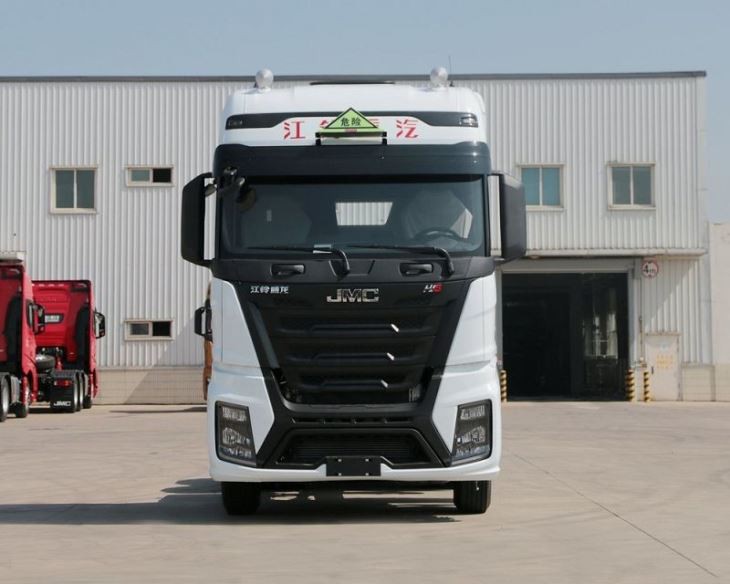Managing waste effectively is crucial for both residential and commercial properties. One of the solutions gaining popularity is the roll off trash compactor. This article explores what roll off trash compactors are, their benefits, applications, and practical tips for using them.
What is a Roll Off Trash Compactor?
A roll off trash compactor is a large, wheeled container designed to compact waste materials, minimizing the volume of trash generated at waste sites. These compactors can easily be transported to and from various locations, making them an ideal choice for construction sites, large events, and industrial facilities.
Key Features of Roll Off Trash Compactors
- High Capacity: These compactors can hold a significant amount of waste, reducing the frequency of pickups.
- Durable Construction: Built to withstand heavy loads and harsh conditions.
- Specialized Designs: Available in different sizes to accommodate various waste types, including construction debris and municipal waste.
Benefits of Using a Roll Off Trash Compactor
1. Reduces Waste Volume
Compact waste helps in decreasing landfill space and managing waste more effectively.
2. Cost-Effective Solution
While there is an initial investment, roll off compactors typically lead to savings in disposal costs due to fewer pickups needed.
3. Environmental Impact
By reducing the volume of waste, roll off compactors help in reducing greenhouse gas emissions associated with waste transport and disposal.
4. Improved Safety
Compact waste reduces risks associated with overflow and scattered debris, promoting a safer working environment.
Applications of Roll Off Trash Compactors
1. Construction Sites
Construction projects generate significant waste. Roll off compactors can handle everything from drywall to metal, making cleanup more efficient.
2. Events and Festivals
Large gatherings require substantial waste management. Renting compactors can help manage waste wisely, ensuring easy disposal after the event.
3. Industrial Facilities
Manufacturing plants produce various wastes, including packaging materials and obsolete equipment. Compacting these materials can streamline waste removal processes.
Choosing the Right Roll Off Trash Compactor
1. Assess Your Waste Type
Identify the type of waste you need to manage (e.g., construction debris, organic waste) to choose the appropriate compactor.
2. Determine Capacity Requirements
Select a compactor based on the volume of waste you expect average usage. Common sizes include:
| Size (Cubic Yards) | Typical Use |
|---|---|
| 10 | Small renovations, home cleanouts |
| 20 | Medium-sized projects, commercial cleanouts |
| 30 | Large construction sites, intensive debris |
3. Rental vs. Purchase
Evaluate whether renting or purchasing a compactor makes more sense based on your needs. Renting may be better for short-term projects, whereas purchase may be ideal for businesses with ongoing waste generation.
How to Use a Roll Off Trash Compactor Effectively
1. Proper Loading Techniques
Distribute weight evenly throughout the compactor and avoid overloading to maximize efficiency.
2. Regular Maintenance
Inspect and maintain the compactor regularly to ensure its longevity and reliability. This includes checking hydraulic systems and cleaning to prevent material buildup.
3. Safety Protocols
Establish safety procedures for loading and unloading waste. Ensure that employees are aware of potential hazards.
Practical Examples of Roll Off Trash Compactor Usage
1. Construction Project Case Study
A residential builder faced a challenge managing waste on a large site. They rented a 30-yard roll off trash compactor and found that they were able to keep the site organized, reducing cleanup times and improving efficiency.
2. Large Event Management
For a music festival, organizers used multiple 20-yard roll off compactors strategically located around the venue. This resulted in reduced litter and improved attendee experience.
Cultural Considerations in Waste Management
1. Local Regulations
Different regions have varying regulations regarding waste disposal. Familiarize yourself with your local guidelines to ensure compliance.
2. Environmental Practices
Incorporate recycling and composting where possible alongside using roll off compactors to promote sustainable practices.
Maintenance Tips for Roll Off Trash Compactors
1. Schedule Regular Inspections
Conduct inspections every few months to identify any issues before they become major problems.
2. Keep it Clean
Regularly remove debris that may accumulate around the unit to prevent malfunctions and maintain efficiency.
3. Train Employees
Ensure that staff are adequately trained to operate the compactor, focusing on safety and efficiency best practices.
Frequently Asked Questions (FAQ)
1. How does a roll off trash compactor work?
A roll off trash compactor uses hydraulic mechanisms to compress waste within a container, significantly reducing its volume for more efficient removal.
2. Can I rent a roll off trash compactor?
Yes, many companies offer roll off trash compactors for rent. This is ideal for short-term projects.
3. What materials can I put in a roll off trash compactor?
You can typically dispose of construction debris, general waste, and recyclable materials. Check with your local waste management company for specific guidelines.
4. What is the average rental cost of a roll off trash compactor?
Rental costs can vary based on size and location but typically range from $200 to $700 per week.
5. How often should I empty my roll off trash compactor?
This depends on usage and the compactor’s capacity. Regular monitoring and an emptying schedule based on waste volume is recommended.
6. What safety precautions should I take when using a roll off trash compactor?
Always use protective gear when handling waste, follow loading guidelines to prevent injuries, and ensure that operators are trained.





